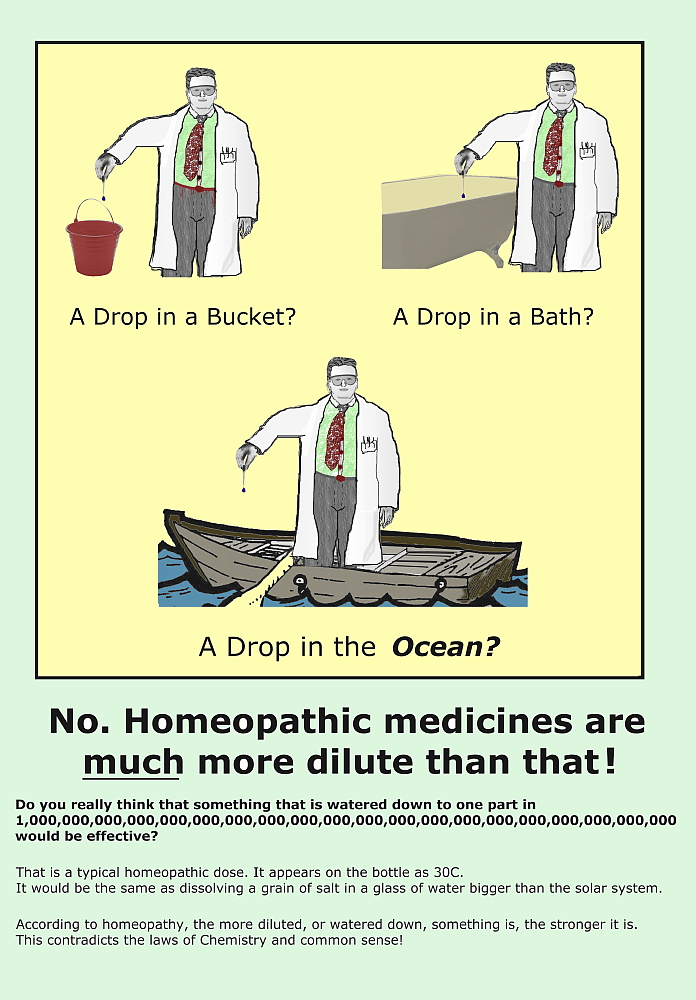9. The list of ingredients seen on remedies may confuse consumers into believing that the product actually contains those ingredients. According to normal homeopathic practice, remedies are prepared starting with active ingredients that are often serially diluted to the point where the finished product no longer contains any biologically "active ingredients" as that term is normally defined. The list of ingredients normally refers to the ingredients originally used in their preparation.
10. Scientific skeptics highlight the lack of active ingredients in homeopathic products by taking large overdoses - examples include James Randi and the 10:23 campaign groups.[99] None of the hundreds of demonstrators in the UK, Australia, New Zealand, Canada and the USA were injured and "no one was cured of anything, either".[100]
11. Pseudoscientific concepts: Claims- Proponents claim that illnesses can be treated with specially prepared extreme dilutions of a substance that produces symptoms similar to the illness. Homeopathic remedies rarely contain any atom or molecule of the substance in the remedy.
12.Evidence: Homeopathy's efficacy is unsupported by the collective weight of modern scientific research. The extreme dilutions used in homeopathic preparations usually leave none of the original material in the final product.
The modern mechanism proposed by homeopaths, water memory, is considered implausible in that short-range order in water only persists for about 1 picosecond.[108][109] Pharmacological effect without active ingredients is inconsistent with the observed dose-response relationships of conventional drugs,[110] leaving only non-specific placebo effects[4][111][112] or various novel explanations.
The proposed rationale for these extreme dilutions – that the water contains the "memory" or "vibration" from the diluted ingredient – is counter to the laws of chemistry and physics, such as the law of mass action.[108]
The lack of convincing scientific evidence supporting its efficacy[23] and its use of remedies without active ingredients have led to characterizations as pseudoscience and quackery,[24][26][27][113] or, in the words of a 1998 medical review, "placebo therapy at best and quackery at worst."[28] Use of homeopathy may delay or replace effective medical treatment, worsening outcomes or exposing the patients to increased risk.[5][32][33][114]





No comments:
Post a Comment